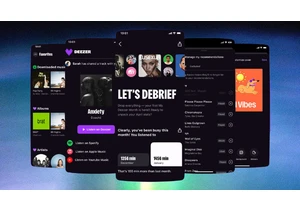Here is a common scene: A supervisor agrees to write your letter of recommendation with one condition—you draft it. Shocker. We, too, were surprised the first time this happened to us. We assumed these letters were blinded evaluations. But after deconstructing our initial unease with the secret handshake, wink-wink agreement, we found the rationale: Writing a good letter of recommendation requires an intimate and detailed knowledge of the person. Who better to write this than you?
Much of the literature teaches others to write about you. It’s time to turn the tables and spotlight this unspoken but widely used practice. Here, we discuss strategies for prepping your own letter of recommendation.
To be clear, we intentionally define prepping as: writing the first draft. The letter may start with you but it absolutely should not end with you. No matter how good your draft, the letter writer should read, edit, and submit the final draft on your behalf. The final voice and tone of the letter should be that of the letter writer. We recognize some opportunities require you to sign a waiver to not access the letter. We never advocate lying; if you waive your rights, then you should not write a draft.
When the letter writer ask you to write the first draft, keep these six points in mind.
Showcase the writer
The job description of the letter writer should go in the first paragraph to open the letter. Before writing the first word, make sure you understand the position, responsibilities, and perspective of the letter writer. Then leverage their title and role as it relates to you. Don’t overshare their work, this letter is ultimately about you. Instead, curate and share this information thoughtfully. Include how long the letter writer has known you, the environment in which they know you, and the context in which you work together. This frame explains their relevance to you. A letter from someone with related background and credentials is powerful. A letter from someone who knows you well, even more so.
Share your stories
Show, don’t tell. Avoid simply listing your talents and accomplishments in a single sentence without context. Instead, pick specific examples: projects or leadership experiences, for instance, in which you demonstrate distinct and significant skills. For example, don’t just describe yourself as dedicated. Instead, illustrate how you read the literature and watched online educational videos to learn Google slides for collaborative presentations. You then taught this to your 6-member team. Subsequently, your team has shareable live presentations that are completed more efficiently than other teams. Specifics help you stand out and show your value.
Specify your accolades
Describe your accomplishments objectively, using specific examples. For example, you are encouraged to write “published 10 papers,” or “won the mentoring award 3 years in a row,” or “organized a community service event with 40 volunteers.” Those are impactful details that perhaps you know accurately. But be careful about superlatives: the best, the most, the fastest, or the smartest. That judgment, true or not, should not come from you. Let your letter writer use the objective details you describe to compare your performance as well its impact to the community at large. Let them gush about you: your potential, your human qualities, your work ethic, how you compare to peers.
Screen for errors
Triple check the specifics of the opportunity. Be sure the names of all organizations are correct. If the letter is for a named opportunity, such as an award or grant, get the exact name and be sure to spell it correctly. Check the more discrete critical facts: that the letter is addressed to the correct person or group, the mailing and email address are spelled correctly, the date is up to date.
Scale the impact
Each letter of recommendation is a granular part of your larger story. What changes in the world if you are selected for this opportunity? Spend the last paragraph discussing how this opportunity will shape your career. Be specific. For instance, if you are applying for a writing program, mention that the opportunity will make you a better communicator and storyteller for your company. When relevant, highlight the need for someone with your unique background to be represented in the space for which you are applying.
Supply References
One effective and personal approach: Letters of recommendation might feature quotes or anecdotes from other people who know you well. Including what other people say about you makes the letter personal and specific to you. Offer these names and contact information to your letter writer.
Prepping your letter of reference is strategic. Only you have the deepest insight into the core of you and where your career is moving. For letter writers, finding the time to invest in writing a good letter can be a limiting step. No matter their roles and responsibilities, your letter writer is busy; prepping the first draft will help move the process along. Remember to include the most salient objective facts. Allow the letter writer to focus on the subjective, the superlatives, the sentimentality, and the significance of knowing you. Prepping your own letter of recommendation is a step that benefits everyone without losing the overall effect and legitimacy of the letter.
Adaira Landry, MD, MEd, is an emergency physician and assistant professor of emergency medicine at Harvard Medical School. Resa E. Lewiss, MD, is a professor of emergency medicine and radiology at Thomas Jefferson University Hospital. She is the creator and host of the Visible Voices podcast.
Login to add comment
Other posts in this group

Amid the video podcast boom, Netflix is making its own move into the space.

If real Easter eggs aren’t your thing this weekend, you may find hunting for digital ones more enjoyable. And there are some cool ones to find at your fingertips, provided you have an iPhone or Ma

With music streaming, users have gotten used to being at the mercy of algorithms. But French music streamer Deezer is making it easier for its subscribers to make the algorithm work for them.

Trying to get from point A to point B? If only it were that simple! With any manner of travel these days, you’ve got options: planes, trains, buses, ferries, and beyond. And finding the best

When Twitter cofounder and Medium founder Evan “Ev” Williams was planning his 50th birthday party, he didn’t know who to invite. Having spent more of his life building and scaling tech

If you thought you’d heard the last of the viral “Apple” dance, think again. The TikToker behind it is now suing Roblox over its unauthorized use.
Last year, during the height of Brat su

A Wall Street Journal report this week gave an extensive look into how Elon Musk, the
